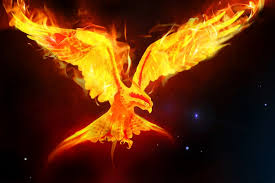I finally got around to reading this the other day and I was absolutely floored by the wisdom of this book. Obviously it is a bit outdated and I don’t agree with everything but I feel like I’ve glimpsed into the mind of a warrior who truly understood combat. Did anyone else have a similar reaction?
Seriously looking at his life i would say he bullshited that book for posterity to look upon him favourably, while his motto was “Do upon others what they would do upon you, but faster and harder”. Kinda japanese Machiavelli of a sword.
All warfare kinda boils down to that. But now that you mention it: Machiavelli is also very interesting to read. Great political insight, and comical lack of military insight.
How did you reach those conclusions? I didn’t get anything like that from the book.
That’s my point. Look behind the book.
Then we have a dude who wanted to be a Daimjo during the cvil war times but was born too late, so he beat up anyone that could provide a challenge, only really caring about strategies, then studdied Buddhism, art and tried to teach some pupils not to be idiots.
But that doesn’t answer my question. I’m no expert on his life but those are some pretty big claims so I’m just wondering if there’s any truth to them.
Sigh. Ok, so to answer your question: Yes, he did really understood combat.
What’s it about?
Sorry just about to go back to work here but basically it teaches his “way of strategy”. A lot of it is pretty esoteric so I might do another post about the book later once I understand it better.
Jup, Musashi was rad.
You seem to know a little bit about him and the book, if you are able to provide a comment on my understanding of what he means by the way?
To me it seems like he means that at any given moment there is a correct path to be taken to lead to victory in combat. So if not in a fight a person following the way should be training properly to make themselves a better fighter, and in a combat scenario there is a correct path to take to beat the opponent(s), and the former is necessary to achieve the later.
Obviously he talks about learning other things to assist in the understanding of the way. Am I kind of in the right ballpark?
I got from it that you should use everything you have to win. Conventions or form be damned. If you die with a unused reserve weapon, why even try fighting in the first place? If you have to be a dick to give you an advantage, do it.
Basically, treat every fight like a battle of armies. The location is as important as the time, as is the troop composition.
Yeah absolutely, but I’m wondering what he would say about compromising our morality to win. He describes the way of the warrior as also being the way of the gentleman and talks about being a good leader for one’s people (putting aside the gender issue here although I don’t see why anyone couldn’t be a warrior) so I wonder what he would say about that.



